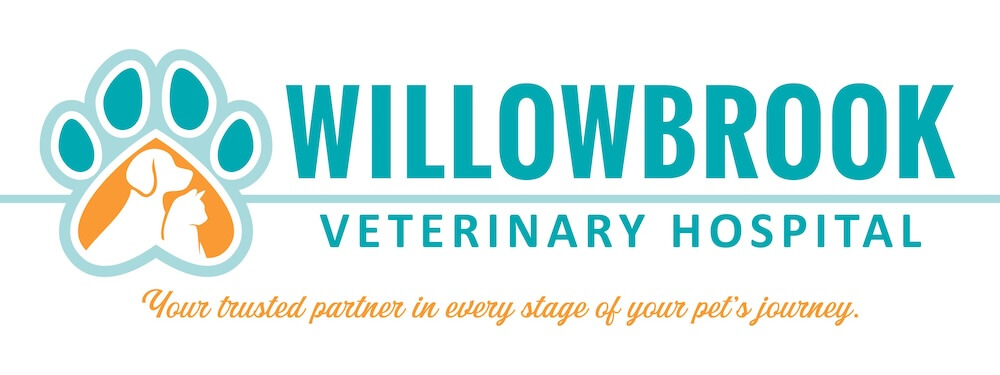Endocrine Diseases in Cats: What You Need to Know
At Willowbrook Veterinary Hospital, we’re committed to helping your cat live a healthy, comfortable life. Endocrine diseases—conditions that affect hormone-producing glands—are common in cats, especially as they age. Early recognition and treatment are key to managing these conditions effectively.
What Are Endocrine Diseases?
Endocrine diseases occur when the glands that produce hormones (like the thyroid, pancreas, or adrenal glands) stop working properly, causing too much or too little hormone production. These hormones regulate vital body functions, so imbalances can affect your cat’s metabolism, energy, and overall health.
The Most Common Endocrine Diseases in Cats
The most frequently diagnosed endocrine disorders in cats include:
- Diabetes mellitus (insulin deficiency)
- Hyperthyroidism (overactive thyroid gland)
- Less common but possible: hypothyroidism, Cushing’s disease (hyperadrenocorticism), Addison’s disease (hypoadrenocorticism), insulinoma, and acromegaly
Causes of Endocrine Diseases in Cats
Endocrine diseases can result from:
- Benign or malignant tumors of hormone-producing glands
- Immune system disorders
- Genetic predisposition
- Age-related gland changes
- Diabetes Mellitus in Cats
Symptoms of Diabetes in Cats
Watch for:
- Increased thirst and urination
- Increased appetite with weight loss
- Weakness in hind legs (plantigrade stance)
- Lethargy
- Vomiting
How Is Diabetes Diagnosed?
Diabetes is diagnosed through blood and urine tests that measure glucose (sugar) levels. Persistently high blood glucose and the presence of glucose in urine confirm the diagnosis.
Treatment for Diabetes
Most diabetic cats require daily insulin injections and dietary changes to regulate blood sugar. Regular monitoring with your veterinarian is essential for long-term management.
Hyperthyroidism in Cats
What Is Hyperthyroidism?
Hyperthyroidism is caused by a benign tumor in the thyroid gland that produces excess thyroid hormone, speeding up metabolism.
Symptoms of Hyperthyroidism
Look for:
- Weight loss despite increased appetite
- Increased thirst and urination
- Restlessness or hyperactivity
- Vomiting or diarrhea
- Rapid heart rate
- Treatment for Hyperthyroidism
Treatment options include:
- Medication (methimazole) to reduce thyroid hormone production
- Prescription diet (iodine-restricted food)
- Radioactive iodine therapy (curative)
- Surgery to remove the affected thyroid gland
Hypothyroidism in Cats
Though rare in cats, hypothyroidism can occur, often as a result of overtreatment for hyperthyroidism or congenital issues.
Signs of Hypothyroidism
- Lethargy
- Weight gain without increased appetite
- Hair thinning or poor coat condition
- Cold intolerance
Diagnosis and Treatment
Diagnosed with blood tests measuring thyroid hormone levels. Treated with synthetic thyroid hormone replacement (levothyroxine).
Cushing’s Disease (Hyperadrenocorticism) in Cats
Cushing’s disease occurs when the adrenal glands produce too much cortisol, often due to a pituitary tumor.
Symptoms of Cushing’s Disease
- Increased thirst and urination
- Excessive appetite
- Pot-bellied appearance
- Thin skin or hair loss
- Muscle weakness
Treatment Options
Treatment may involve medication to lower cortisol production, surgery to remove adrenal tumors, or radiation for pituitary tumors. This disease is rare in cats and can be challenging to manage.
Addison’s Disease (Hypoadrenocorticism) in Cats
Addison’s disease is caused by insufficient cortisol production from the adrenal glands. It’s very rare in cats.
Symptoms of Addison’s Disease
- Weakness
- Lethargy
- Vomiting or diarrhea
- Poor appetite
- Collapse during stress
Diagnosis and Management
Diagnosed with electrolyte testing and ACTH stimulation tests. Treated with hormone replacement therapy and careful monitoring of electrolyte balance.
Insulinoma in Cats
An insulinoma is a rare pancreatic tumor that produces excess insulin, leading to low blood sugar.
Signs of Insulinoma
- Weakness
- Disorientation or confusion
- Trembling or seizures
- Collapse
Treatment for Insulinoma
Treatment may involve surgery to remove the tumor or medical management with medications and diet to maintain stable blood glucose.
Acromegaly in Cats
Acromegaly is caused by a growth hormone-producing tumor in the pituitary gland, leading to insulin resistance and tissue overgrowth.
Symptoms of Acromegaly
- Poorly controlled diabetes
- Broad facial features or enlarged jaw
- Increased body size or weight gain
- Thickened skin or paws
Diagnosis and Treatment
Diagnosed with blood tests (IGF-1 levels) and imaging (CT or MRI). Treated with radiation therapy or medications to shrink the pituitary tumor.
Preventing Endocrine Diseases
While not all endocrine diseases can be prevented, you can reduce risk by:
- Maintaining a healthy weight and diet
- Regular veterinary checkups
- Monitoring for early signs of illness
- Following recommended lab screenings, especially for senior cats
Long-Term Effects of Untreated Endocrine Diseases
Untreated endocrine disorders can lead to:
- Severe weight loss or gain
- Muscle wasting or weakness
- Organ failure
- Diabetic ketoacidosis (life-threatening in diabetes)
- Heart disease (from hyperthyroidism)
- Neurological damage
Early diagnosis and treatment greatly improve outcomes.
Managing Your Cat’s Endocrine Disease at Home
Home care is vital and may include:
- Administering prescribed medications or insulin
- Providing a specialized diet
- Monitoring food and water intake, weight, and behavior
- Keeping regular veterinary appointments for bloodwork and exams
Dietary Considerations for Cats with Endocrine Disease
Nutrition plays a critical role in managing endocrine disorders:
- Diabetes: Low-carbohydrate, high-protein diets
- Hyperthyroidism: Iodine-restricted diets (if medically recommended)
- Obesity-related conditions: Controlled-calorie, weight-loss diets
Your veterinarian can recommend the best diet for your cat’s specific condition.
We’re Here to Help
At Willowbrook Veterinary Hospital, we’re dedicated to providing compassionate, comprehensive care for cats with endocrine diseases. If you have concerns about your cat’s health, contact us today at (503) 968-2911 or schedule an appointment online.
